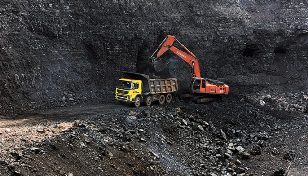New Delhi: With the objectives of facilitating utilization of lands which are mined out or are practically unsuitable for coal mining and for increasing investment and job creation in coal sector, the Union Cabinet chaired by the prime minister Narendra Modi has approved the policy for use of land acquired under the Coal Bearing Areas (Acquisition & Development) Act, 1957 [CBA Act]. The policy provides for utilisation of such land for the purpose of development and setting up of infrastructure relating to coal and energy.
The CBA Act provides for acquisition of coal bearing lands and their vesting in Government company, free from any encumbrance. The approved policy provides clear policy framework for utilisation of following types of lands acquired under the CBA Act:
- Lands no longer suitable or economically viable for coal mining activities; or
- Lands from which coal has been mined out / de-coaled and such land has been reclaimed.
The government coal companies, such as Coal India Ltd. (CIL) and its subsidiaries shall remain owner of these lands acquired under the CBA Act and the policy allows only leasing of the land for the specified purposes given in the policy. Government coal companies can deploy private capital in joint projects for coal and energy related infrastructure development activities.
The government company which owns the land would lease such land for specific period given under the policy and the entities for leasing shall be selected through a transparent, fair and competitive bid process and mechanism in order to achieve optimal value. The lands will be considered for the following activities:
- to set up Coal Washeries;
- to set up Conveyor Systems;
- to establish Coal Handling Plants;
- to construct Railway Sidings;
- Rehabilitation and Resettlement of Project Affected Families due to acquisition of land under the CBA Act or other land acquisition law;
- to set up thermal and renewal power projects;
- to set up or provide for coal development related infrastructure including compensatory afforestation;
- to provide Right of Way;
- Coal gasification and coal to chemical plants; and
- to set up or provide for energy related infrastructure.
The lands which are mined out or are practically unsuitable for coal mining are prone to unauthorised encroachment and entail avoidable expenditure on security and maintenance. Under the approved policy, establishment of various coal and energy related infrastructure, without transfer of ownership from Government companies, would lead to generation of a large number of direct and indirect employment.
This unlocking of non-minable land for other purposes will also help CIL in reducing its cost of operations as it will be able to set up coal related infrastructure and other projects such as solar plant on its own land by adopting different business models in partnership with private sector. It will make coal gasification projects viable as coal need not be transported to distant places.
The proposal to utilise land for rehabilitation purpose would ensure proper utilization of land and would eliminate wastage of all-important land resource, avoid acquisition of fresh chunk of land for rehabilitation of Project Affected Families, eliminate loading of additional financial burden on the projects and increase profit. It will also address the demand of the displaced families as they always prefer to stay as close as possible to their original residential places. It will help in obtaining local support for coal projects and also providing land to the State Government for afforestation in lieu of forest land diverted to coal mining.
The Policy will help in realizing the goal of Atmanirbhar Bharat by encouraging domestic manufacturing, reducing import dependence, job creation, etc. The policy will unlock land for various coal and energy infrastructure development activities that would encourage investment in backward areas of the country. Utilisation of already acquired land would also prevent fresh acquisition of land and related displacement and would promote local manufacturing and industries.







